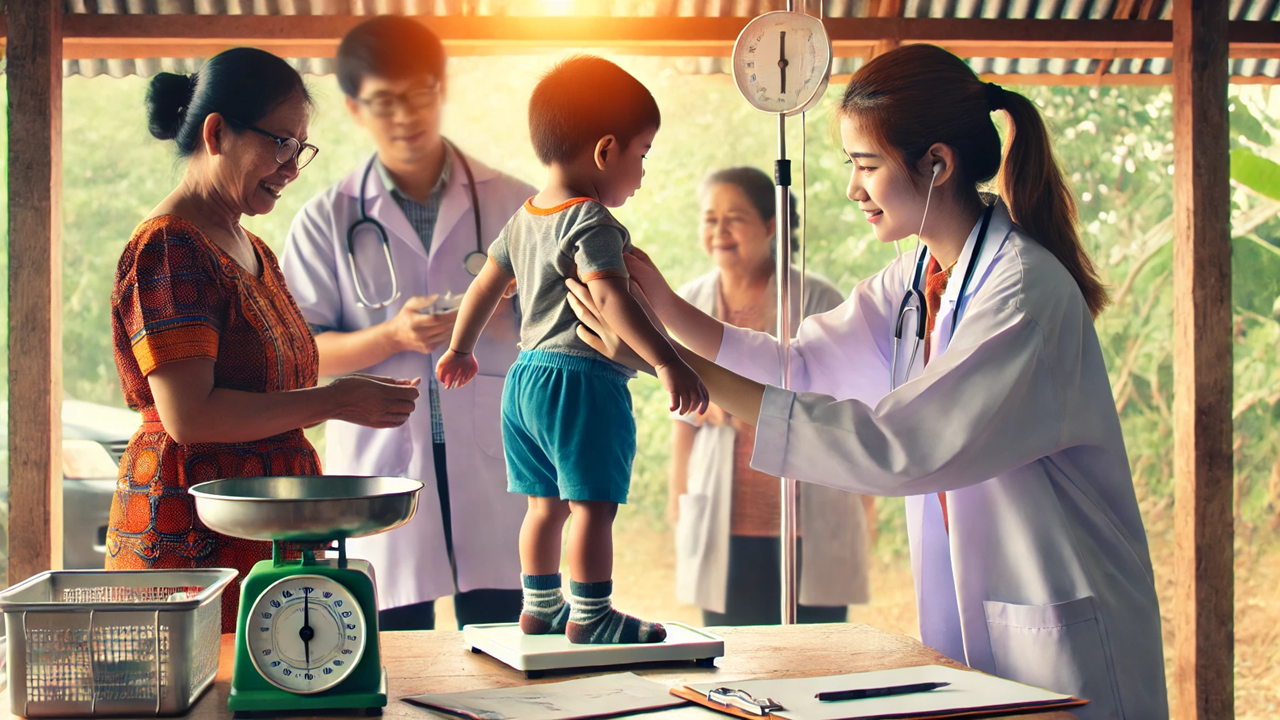WHO Sets Global Agenda to Prioritize Paediatric Clinical Trials for Child Health
The report was launched in response to WHO’s 2024 Guidance for Best Practices for Clinical Trials, which called for greater inclusion of under-represented populations, such as children, in global research.

In a significant step toward addressing persistent gaps in child health research, the World Health Organization (WHO) has released a landmark technical report titled "The Future of Paediatric Clinical Trials – Setting Research Priorities for Child Health." This report outlines a global research agenda designed to guide clinical trial efforts toward areas with the greatest potential to improve health outcomes for children aged 0–9 years, especially in low- and middle-income countries (LMICs) where inequities in healthcare remain most pronounced.
The report was launched in response to WHO's 2024 Guidance for Best Practices for Clinical Trials, which called for greater inclusion of under-represented populations, such as children, in global research. The new agenda seeks to provide governments, donors, researchers, and policy-makers with a strategic roadmap for targeting investment, collaboration, and research infrastructure where it matters most.
"This research agenda offers governments, partners, and research institutions a clear direction for investment," said Dr Meg Doherty, Director of WHO's Department of Science for Health. "By identifying where evidence is most needed, it creates an opportunity to coordinate resources and foster collaboration to address the highest-burden areas affecting children today."
Why This Agenda Matters: Bridging the Evidence Gap in Child Health
While the last two decades have seen notable progress in reducing child mortality, significant disparities persist—particularly in LMICs where preventable diseases, malnutrition, and limited healthcare access continue to drive morbidity and death. The under-representation of children in clinical research has meant that many treatments used in paediatric care are based on adult studies, with limited direct evidence of safety, dosage, or effectiveness in younger populations.
Children are not just small adults—their biology, disease progression, and responses to treatment vary significantly. The WHO's research agenda seeks to correct this imbalance by promoting research designed specifically with children in mind, tailored to their unique physiological, developmental, and social needs.
An Inclusive Global Effort: From 653 Questions to 172 Priorities
The development of the agenda was a rigorous, participatory process involving over 380 global stakeholders—including clinicians, researchers, national programme leaders, community advocates, and caregivers. These contributors submitted 653 research questions, which were reviewed, categorized, and prioritized to create a final list of 172 high-priority clinical trial areas.
These priorities span a broad spectrum of child health concerns:
-
Infectious diseases (e.g., pneumonia, malaria, diarrhoeal diseases)
-
Noncommunicable diseases (e.g., asthma, epilepsy, congenital conditions)
-
Newborn health (e.g., neonatal sepsis, low birth weight, preterm care)
-
Nutrition and early childhood development
-
Mental and behavioural health
The agenda focuses not only on what research should be done, but also how—emphasizing feasibility, scalability, and equitable impact.
"Establishing research priorities is only the first step," said Dr Pascale Allotey, Director of WHO's Department of Sexual, Reproductive, Maternal, Child, Adolescent Health and Ageing. "Strategic and sustained funding will be critical to move these priorities forward. This agenda provides a shared roadmap that donors and partners can use to align investments and support national needs."
Core Themes and Strategic Focus Areas
In addition to listing priority research questions, the report outlines cross-cutting enablers that are essential to ensuring effective implementation and global uptake:
1. Integration into National Health Systems
WHO stresses the importance of embedding research into existing health infrastructures, so that findings can be rapidly translated into policy and practice.
2. Regional Collaboration and Capacity Building
To enable multi-country paediatric trials, the report calls for stronger regional research networks and institutional capacity, especially in countries where such trials are rare due to logistical, ethical, or regulatory challenges.
3. Coordinated Financing Mechanisms
The report notes a critical need for strategic, pooled funding mechanisms that can support long-term research pipelines, while ensuring equity in funding distribution and access.
4. Promoting Equitable Inclusion
There is a strong emphasis on including historically underserved populations—including children in humanitarian settings, those living with disabilities, and those affected by conflict, poverty, or marginalization.
From Research to Real-World Impact
The WHO's paediatric clinical trial agenda is not merely academic—it is designed to influence policy-making, WHO guideline development, and national programme design. The ultimate goal is to ensure that new medicines, diagnostics, and interventions for children are backed by solid evidence and are safe, effective, and accessible for all.
The report is also intended to help donors and funding agencies better align their strategies, avoid duplication, and prioritize areas with the highest potential for public health return.
"By focusing on shared priorities and promoting equitable inclusion," the report states, "the agenda aims to ensure that future research addresses the needs of all children—including those who have historically been left behind."
Next Steps: Mobilizing the Global Research Community
The WHO has committed to working with Member States, research institutions, and funding bodies to apply this agenda in strategic planning, build collaborative partnerships, and secure financing. WHO will also promote cross-sectoral dialogue and create platforms for sharing progress, best practices, and outcomes of paediatric trials.
This new agenda provides not just a list of questions—but a compass for action that could transform how the world approaches child health research in the decades to come.
ALSO READ
-
Tejashwi's favourite CM MK Stalin, whose party DMK insulted Biharis by comparing them with 'bidis', claims Amit Shah at Bhagalpur rally.
-
Those who are concerned only about welfare of their sons, daughters can't make Bihar developed: Amit Shah attacks RJD, Cong at Jamui rally.
-
I came to know BJP leaders who cast votes in Delhi also voted in first phase of Bihar polls, claims Rahul Gandhi at Banka rally.
-
New WHO Report Urges Bold Global Action to Ensure Access to Future TB Vaccines
-
Babasaheb Ambedkar said a lawyer is also a social engineer who brings promise of social justice into reality: CJI Bhushan Gavai.









